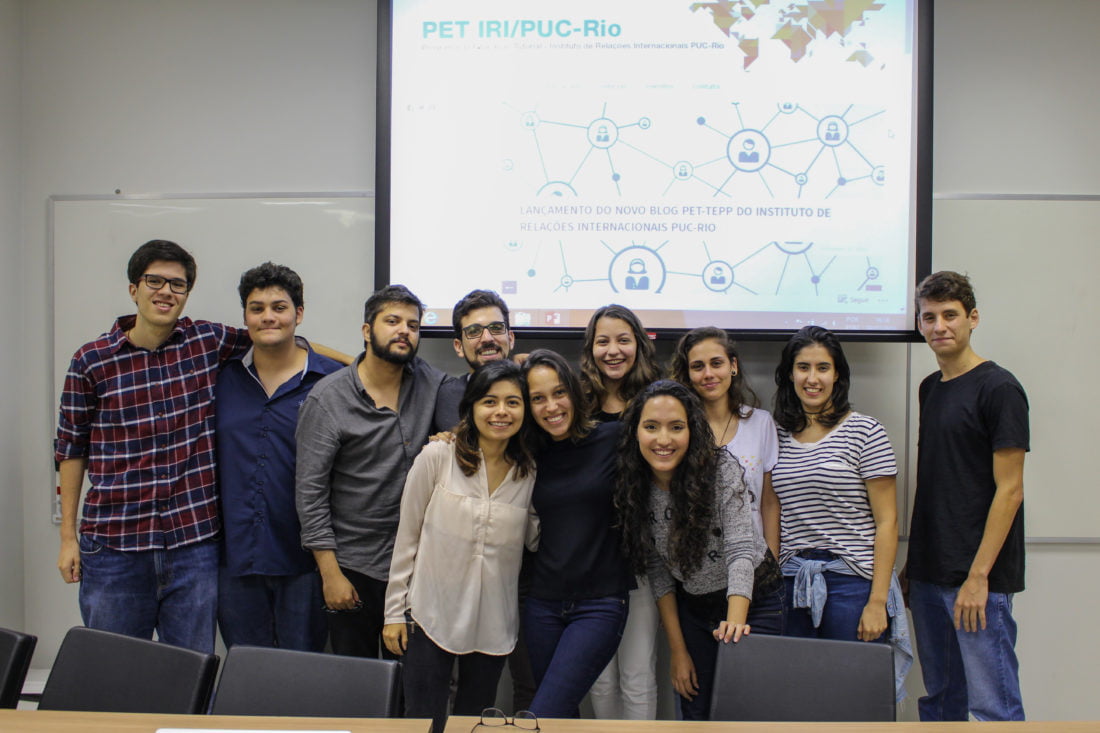
INTERVIEW WITH STUDENTS FROM THE PET-IRI PROGRAMME
As a research center, the BRICS Policy Center has the pleasure of receiving many researchers every year. Among them are students and professors of PUC-Rio, exchange students, and foreign researchers from partner institutions. In line with this, we interviewed students from the Programme of Tutorial Education (PET) of the Institute of International Relations of PUC-Rio to illustrate their experiences in the BPC.
The PET is financed by the Brazilian Ministry of Education and was created to promote a highly specialized degree for the undergraduate students in International Relations at PUC-Rio. According to Bruno Magalhães, IRI professor and coordinator of the programme, “the students selected are trained to achieve excellence in different abilities necessary for a successful career in academia and in other professions associated with research in international relations.
Linked to the programme, Victória Figueiredo Machado, a student in the sixth semester of her course, has her research guided by the project “Brasil Global: Desafios da inserção internacional brasileira em um mundo de transformação” and confirms that her research abilities have greatly evolved thanks to the teaching and practical experience of the programme, which go beyond what is taught in the university. Having the BPC as a workspace, according to her, is fundamental for the development of her research, since teaching materials, articles and books are available. Victória also emphasizes the research hubs of the center, which function as a reference point and allow contact with well-known researchers who are in the BPC.
Rachel Pires, also in her sixth semester, highlights the analytical capacity which develops while a student is in the PET programme, which she uses all the time in her degree work . Beyond the well-equipped environment, Rachel highlights the events, debates and works organized by the Center, a fact that, according to her, allows students to come into contact with new ideas and different themes. The regular meetings in the center also help her to articulate her thoughts and reflections, giving support to her research and generating more academic works.
Finally, Danilo Bines, part of the new class at PET and in his fourth semester, divides the development of competencies enabled by the programme in two distinct, but complementary, levels: the enhancement of techniques, reading and presentation; and the theme of research at PET, which is always related to a current issue in Brazil. This semester, the theme was “Human Rights in the Sphere of International Institutions”.
Selection processes for the institution happen annually and are widely published by the Institute.


